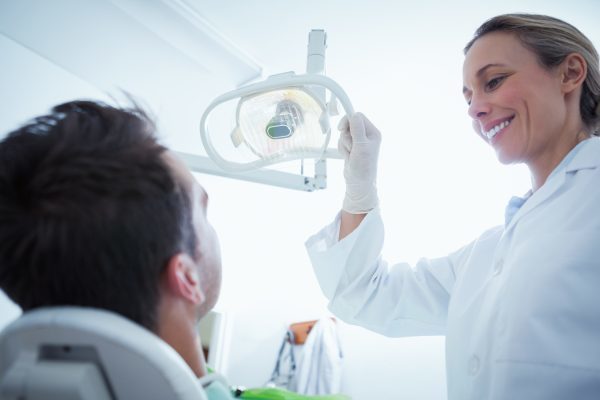 Linda Miles considers the differing views from within the dental practice of lost chairtime
Linda Miles considers the differing views from within the dental practice of lost chairtime
Staff viewpoint
The dental team members in some practices have no idea that their compensation is very closely associated with effective use of the dental chair time during the work day. It is no mystery to me why some practices have 10 wasted chair hours per day (dentists and hygienists), while others have only two hours throughout the day – which in most cases is normal.
In some practices the staff feels so overwhelmed with their workload that they find themselves secretly hoping for a no show or failed appointment which is the only way they can possibly catch up. Some team members remain neutral and are not stressed about it, but often think, ‘there is nothing I can do about it’.
Smart team members are very aware of the fact that wasted chair time is income their doctor can never recoup and adversely affects their ability to make higher wages or to have improved benefits. These smart team members go out of their way to reduce open chairtime.
Dentist’s viewpoint
Dentists feel totally helpless and frustrated with open chairtime. They know this is income that can never be recouped and they also know that two broken appointments per day in each hygiene schedule (with two hygienists), does not mean a £300 plus loss that day, but in reality with the four opportunities lost in future operative, (hygiene is a third of total gross production), this is actually a £900 plus loss that day! If this figure is multiplied times 200 work days in the year, the loss is huge (£180,000).
If staff salaries are 22% of collections and collections are 100%, this is £39,600 that could have been paid in additional staff wages or benefits…With six team members, and this is a loss of more than £500 per month per staff member. This is why we hope for as close as possible to zero defects in the schedule day-to-day.
How to avoid lost chairtime
Broken appointments are caused by several problems, with number one being a lack of communication from the dentist and the team about the importance of the next visit. The last conversation a patient should hear before getting out of the dental chair each day is a 30-second eye-to-eye, heart-to-heart message stressing the value of the next appointment and the importance of not postponing or missing it.
Another major factor is an unmotivated team or one that has no planned ‘down time’ to finish all their behind the scenes duties, so that when patient hours are scheduled, zero defects becomes the norm. This is why we recommend team incentive bonus plans and also planned organisational time to work on other projects throughout the month. Planned down-time for doctor/team meetings, behind the scenes duties, and in-house training (your people training your people) is focused down time which creates a huge increase in hour to hour efficiency during patient hours.
Another cause of broken appointments and no shows is leaving messages on home phones for courtesy confirmation calls. Very few people listen to their home voicemail, as anyone they wish to speak with has their mobile phone number. If your practice has not collected the patient’s mobile numbers, I would venture to say that your no-show rate is much higher than it should be.
A lack of training in verbal skills at the reception desk is another huge problem. Sounding neutral or happy when a patient calls to cancel is not the way to handle these type calls. Friendly disappointment is key. An appointment will never become more important to the patient than it appears to be to your team and you. Moving already scheduled patients to fill openings is the kiss of death for patients moving themselves on the schedule! Using an up-to-date pending appointment list is better than moving patients forward.
Steps to follow:
• Remind the team how costly broken appointments per day are to the overall health of the practice. Remind them that it directly affects their paychecks
• Schedule non-patient time to do all the duties that can’t be done during patient hours
• Stop leaving messages on home voicemail. Companies like Sesame and Smile Reminders can be a huge help in making confirmations by cell VM, emails and text messages
• Start stressing the importance of the next visit while the patient is in the chair.
Linda Miles is founder of Miles Global and a true pioneer in the field of practice management consulting. Her career spans four decades in dentistry and 30 of those years as a professional speaker. Consulting has kept her speaking topics fresh and speaking has attracted the top clinicians as clients. Linda recently teamed up with the new owner/CEO of Miles Global, Dr Rhonda Savage, to take the dental consulting business across the globe and help dental practices worldwide.
Website: www.milesglobal.net


